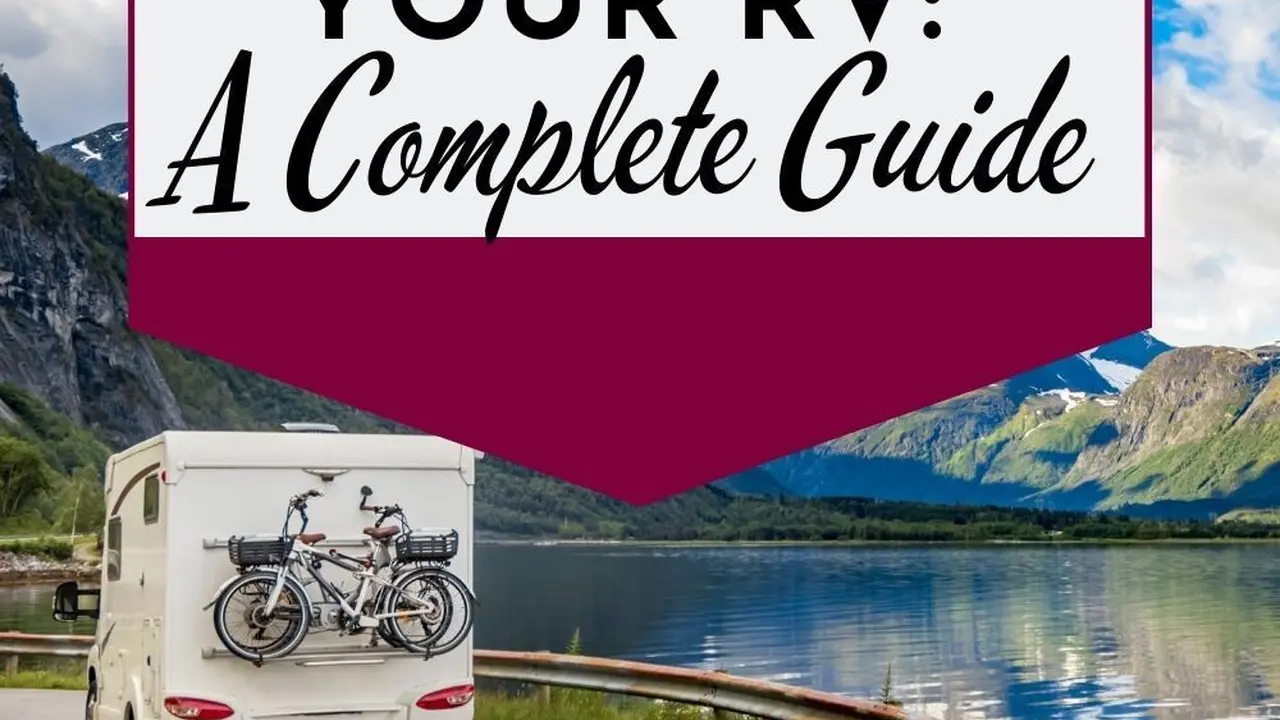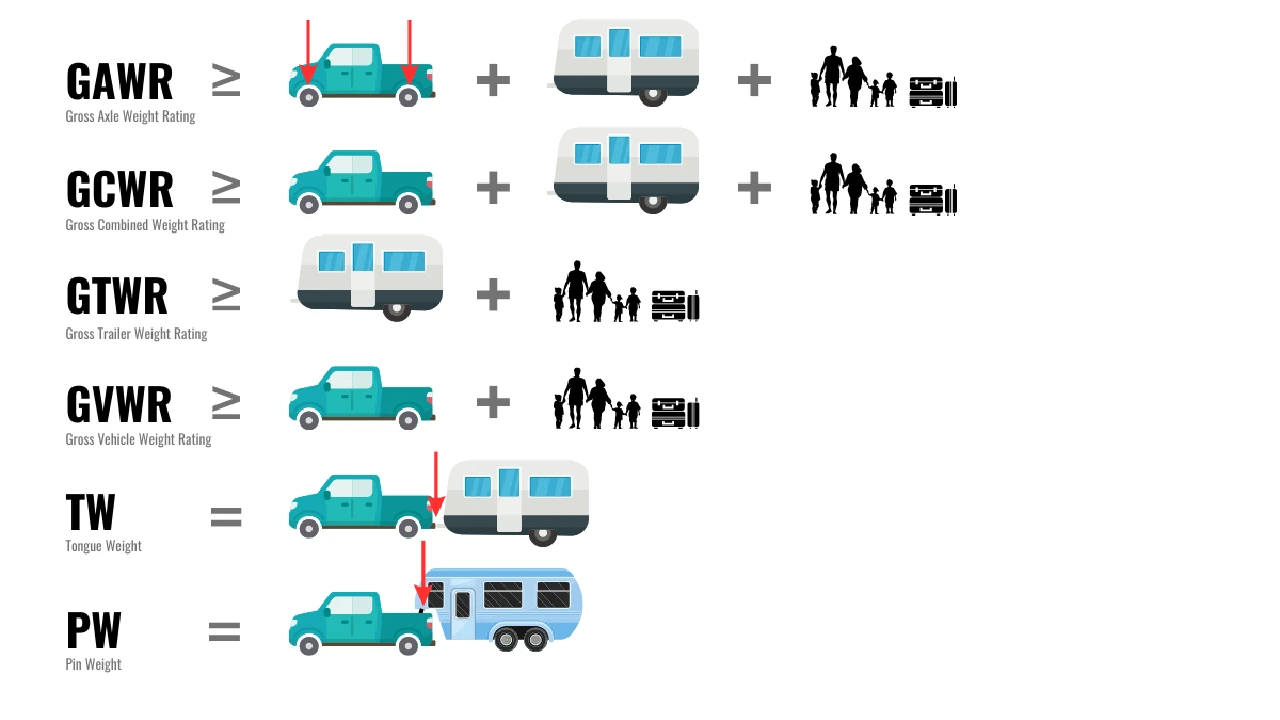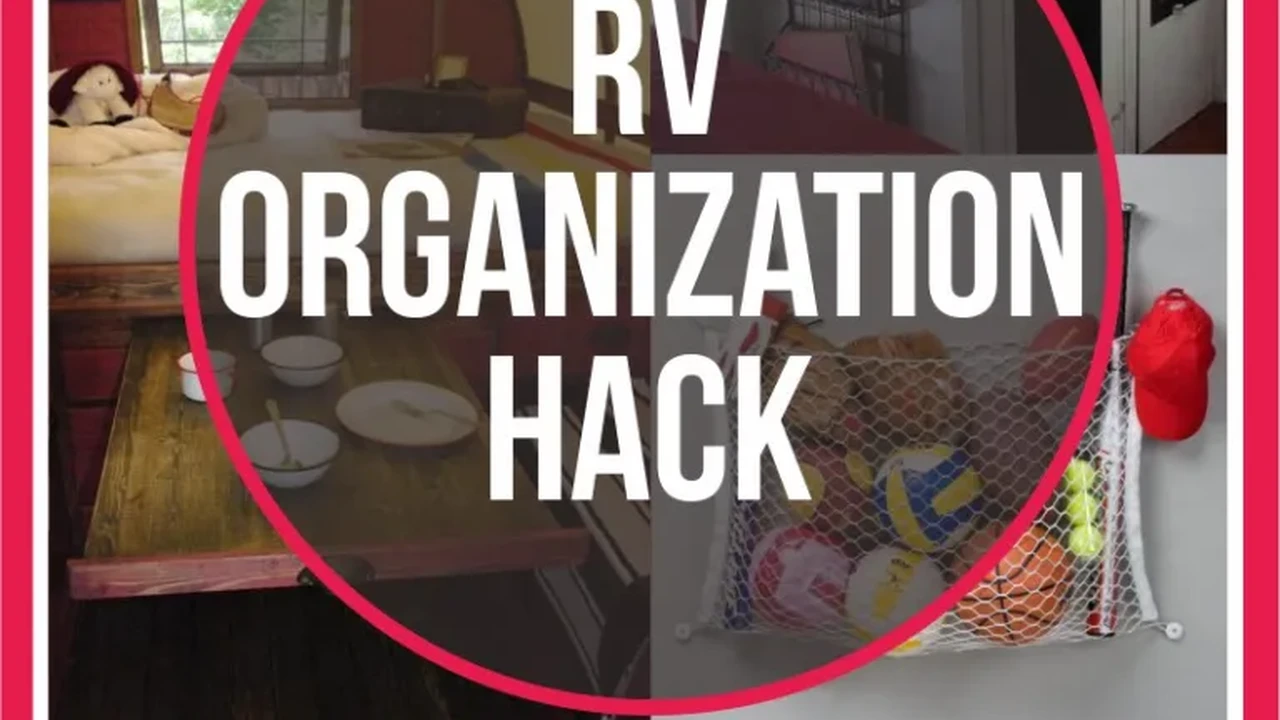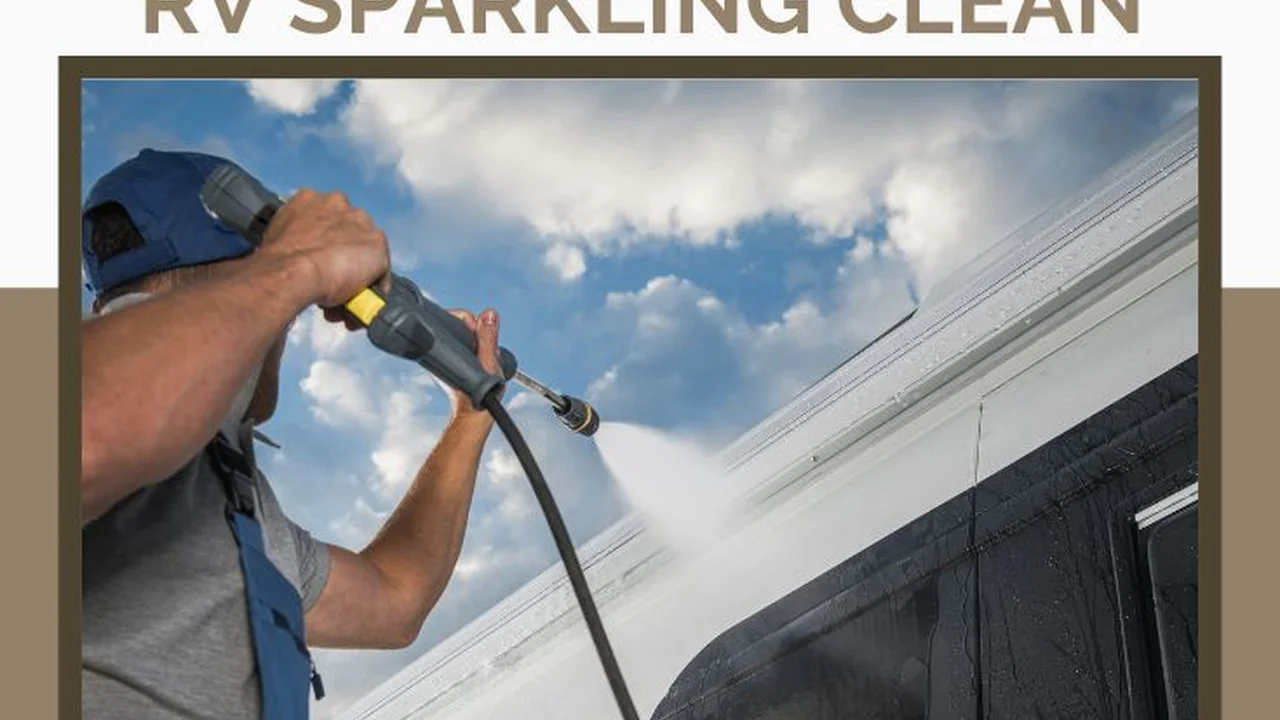The Ultimate Guide to RV Financing and Insurance

Understanding RV Financing Options A Comprehensive Overview
So, you’re dreaming of hitting the open road in your very own RV? That’s fantastic! But before you start picturing yourself parked beside a serene lake, let’s talk about the less glamorous but equally important aspect: financing. Understanding your RV financing options is crucial to making your dream a reality without ending up in a financial bind. Think of it as laying the foundation for your mobile home.
The good news is that RV financing is widely available. The not-so-good news? It can be a bit complex. There are similarities to auto loans and home mortgages, but also some key differences you need to be aware of. Let’s break it down.
Secured RV Loans: The Most Common Path
The most common type of RV financing is a secured loan. Just like a car loan or a mortgage, the RV itself serves as collateral. This means that if you fail to make your payments, the lender has the right to repossess the RV. Because the loan is secured, lenders are generally willing to offer lower interest rates and more favorable terms.
Pros of Secured RV Loans:
- Lower interest rates compared to unsecured loans.
- Longer repayment terms, potentially lowering your monthly payments.
- Easier to qualify for than unsecured loans.
Cons of Secured RV Loans:
- Risk of repossession if you default on the loan.
- You'll need to carry full coverage RV insurance to protect the lender's investment.
Unsecured RV Loans: A Less Common Alternative
Unsecured RV loans are exactly what they sound like: loans that are not backed by any collateral. This means the lender has no right to seize your RV if you fail to make payments. However, this also means that lenders typically charge higher interest rates and have stricter qualification requirements. Unsecured loans are often used for smaller RVs or for borrowers with excellent credit.
Pros of Unsecured RV Loans:
- No risk of repossession.
- Potentially more flexible repayment terms.
Cons of Unsecured RV Loans:
- Higher interest rates.
- Stricter qualification requirements.
- Lower loan amounts available.
RV Financing Through Dealerships: Convenience Comes at a Price
Many RV dealerships offer financing options directly. This can be convenient, as you can handle the financing and purchase all in one place. However, it's important to remember that dealerships often mark up the interest rates on their loans. Be sure to shop around and compare offers from different lenders before committing to dealership financing.
Pros of Dealership Financing:
- Convenient one-stop shopping.
- May be able to negotiate a better deal on the RV if you finance through the dealership.
Cons of Dealership Financing:
- Potentially higher interest rates.
- Less transparent loan terms.
RV Financing Through Banks and Credit Unions: A Solid Option
Banks and credit unions are another excellent source of RV financing. They typically offer competitive interest rates and more transparent loan terms. Credit unions often offer the best rates to their members, so it's worth checking with your local credit union before applying elsewhere.
Pros of Bank and Credit Union Financing:
- Competitive interest rates.
- Transparent loan terms.
- Personalized service.
Cons of Bank and Credit Union Financing:
- May require a longer application process.
- May have stricter qualification requirements than dealerships.
Online RV Lenders: Speed and Convenience
In recent years, online lenders have become increasingly popular for RV financing. These lenders offer a streamlined application process and quick approval times. However, it's important to do your research and choose a reputable online lender.
Pros of Online RV Lending:
- Fast and convenient application process.
- Competitive interest rates.
- Wide range of lenders to choose from.
Cons of Online RV Lending:
- Less personalized service.
- Potential for hidden fees.
RV Insurance Coverage Options Protecting Your Investment
Okay, you’ve got the financing sorted. Now, let’s talk about protecting your investment with the right RV insurance coverage. RV insurance is not just a good idea; it’s often legally required, especially if you have a loan on your RV. But even if it’s not required, it’s essential for protecting yourself from financial loss in the event of an accident, theft, or other covered incident.
Think of RV insurance as a safety net for your home on wheels. It can cover everything from damage to your RV to liability claims if someone is injured on your property. Let’s dive into the different types of coverage you should consider.
RV Liability Insurance Protecting Against Lawsuits
Liability insurance is the foundation of any RV insurance policy. It protects you financially if you are found liable for causing an accident that results in bodily injury or property damage to others. Liability coverage typically includes two components: bodily injury liability and property damage liability.
Bodily Injury Liability: Covers the costs of medical bills, lost wages, and other expenses if someone is injured in an accident that you caused.
Property Damage Liability: Covers the costs of repairing or replacing property that you damaged in an accident, such as another vehicle or a building.
Recommended Coverage: Experts typically recommend carrying at least $100,000 in liability coverage, but higher limits are often advisable, especially if you have significant assets to protect.
RV Collision Insurance Repairing Your RV After an Accident
Collision insurance covers the cost of repairing or replacing your RV if it is damaged in an accident, regardless of who is at fault. This coverage is essential if you want to protect your investment in the event of a collision with another vehicle, a tree, or any other object.
Deductible: Collision insurance typically has a deductible, which is the amount you pay out of pocket before the insurance company pays the remaining costs. Choosing a higher deductible can lower your premium, but it also means you'll have to pay more out of pocket if you have an accident.
RV Comprehensive Insurance Protecting Against Other Perils
Comprehensive insurance covers damage to your RV that is not caused by a collision. This includes damage from theft, vandalism, fire, windstorms, hail, floods, and other covered perils. Comprehensive coverage is particularly important if you live in an area that is prone to natural disasters.
Examples of Comprehensive Claims:
- Theft of your RV or its contents.
- Damage from a fallen tree.
- Damage from a hailstorm.
- Damage from a fire.
Uninsured/Underinsured Motorist Coverage Protecting You from Negligent Drivers
Uninsured/Underinsured Motorist (UM/UIM) coverage protects you if you are involved in an accident with a driver who is uninsured or underinsured. This coverage can help pay for your medical bills, lost wages, and other expenses if the at-fault driver does not have enough insurance to cover your damages.
Why is UM/UIM Important? Even though most states require drivers to carry insurance, many drivers are uninsured or carry only the minimum amount of coverage, which may not be enough to cover your expenses in a serious accident.
RV Personal Property Coverage Protecting Your Belongings
Personal property coverage protects your belongings inside your RV, such as furniture, electronics, clothing, and other personal items. This coverage is important because your RV insurance policy typically only covers the RV itself, not the contents inside.
Recommended Coverage: The amount of personal property coverage you need will depend on the value of your belongings. Take an inventory of your personal property and estimate its replacement cost to determine the appropriate coverage amount.
RV Roadside Assistance Coverage For Unexpected Breakdowns
Roadside assistance coverage provides help if you experience a breakdown while traveling in your RV. This coverage typically includes services such as towing, jump starts, tire changes, and fuel delivery. Roadside assistance can be a lifesaver if you are stranded on the side of the road with a flat tire or a dead battery.
Popular Roadside Assistance Providers:
- Good Sam Roadside Assistance
- AAA RV Plus
- Coach-Net
RV Vacation Liability Coverage Protecting You While Camping
Vacation liability coverage protects you if someone is injured on your campsite while you are camping. This coverage can help pay for their medical bills and other expenses if you are found liable for their injuries.
Example: If someone trips and falls on your campsite, vacation liability coverage can help pay for their medical bills.
Full-Time RV Insurance For Year-Round Living
If you live in your RV full-time, you'll need a special type of insurance called full-time RV insurance. This coverage provides broader protection than standard RV insurance, as it is designed to cover the unique risks associated with full-time RV living. Full-time RV insurance typically includes coverage for things like mail forwarding, emergency living expenses, and medical payments.
Key Considerations for Full-Time RV Insurance:
- Domicile: Where do you consider your permanent residence?
- Mail Forwarding: How will you receive your mail?
- Medical Coverage: Do you have adequate health insurance?
Top RV Financing Companies Lender Reviews and Comparisons
Choosing the right RV financing company can be a daunting task. With so many lenders out there, it's important to do your research and compare offers before making a decision. Here are some of the top RV financing companies to consider, along with their pros and cons:
Good Sam Finance: A Trusted Name in RVing
Good Sam Finance is a well-known and respected name in the RV industry. They offer a wide range of RV financing options, including loans for new and used RVs, as well as refinancing options. Good Sam Finance is known for its competitive interest rates and flexible repayment terms.
Pros of Good Sam Finance:
- Competitive interest rates.
- Flexible repayment terms.
- Wide range of financing options.
Cons of Good Sam Finance:
- May require a higher credit score than some other lenders.
- Application process can be lengthy.
Southeast Financial: Specializing in RV and Boat Loans
Southeast Financial specializes in RV and boat loans. They offer competitive interest rates and flexible repayment terms. Southeast Financial is known for its excellent customer service and its expertise in the RV financing industry.
Pros of Southeast Financial:
- Competitive interest rates.
- Flexible repayment terms.
- Excellent customer service.
Cons of Southeast Financial:
- May not be available in all states.
- May require a down payment.
Alliant Credit Union: A Great Option for Credit Union Members
Alliant Credit Union is a great option for credit union members. They offer competitive interest rates and low fees. Alliant Credit Union is known for its excellent customer service and its commitment to its members.
Pros of Alliant Credit Union:
- Competitive interest rates.
- Low fees.
- Excellent customer service.
Cons of Alliant Credit Union:
- You must be a member to qualify for a loan.
- May have stricter qualification requirements than some other lenders.
LightStream: A Division of SunTrust Bank
LightStream is a division of SunTrust Bank that offers unsecured loans for a variety of purposes, including RV financing. LightStream is known for its competitive interest rates and its fast and easy application process.
Pros of LightStream:
- Competitive interest rates.
- Fast and easy application process.
- Unsecured loans available.
Cons of LightStream:
- Requires excellent credit to qualify.
- Lower loan amounts available.
Bank of America: A National Bank with RV Loan Options
Bank of America offers RV loans to its customers, providing the convenience of banking and financing in one place. They offer competitive rates and various loan terms.
Pros of Bank of America:
- Convenient for existing Bank of America customers.
- Competitive interest rates.
Cons of Bank of America:
- May require a strong credit history.
- Application process can be more complex than online lenders.
Top RV Insurance Companies Protecting Your Mobile Home
Choosing the right RV insurance company is just as important as choosing the right RV financing company. You want to make sure you have adequate coverage to protect your investment in the event of an accident or other covered incident. Here are some of the top RV insurance companies to consider, along with their pros and cons:
Progressive RV Insurance: A Leader in RV Coverage
Progressive is one of the largest and most well-known RV insurance companies in the United States. They offer a wide range of coverage options and discounts. Progressive is known for its competitive rates and its excellent customer service.
Pros of Progressive RV Insurance:
- Wide range of coverage options.
- Competitive rates.
- Excellent customer service.
Cons of Progressive RV Insurance:
- May not be available in all states.
- Some customers have reported difficulty filing claims.
Good Sam Insurance Agency: Tailored Coverage for RVers
Good Sam Insurance Agency specializes in RV insurance. They offer tailored coverage options and discounts for RVers. Good Sam Insurance Agency is known for its expertise in the RV insurance industry.
Pros of Good Sam Insurance Agency:
- Tailored coverage options for RVers.
- Discounts for Good Sam members.
- Expertise in the RV insurance industry.
Cons of Good Sam Insurance Agency:
- May require a Good Sam membership to qualify for discounts.
- Some customers have reported higher premiums than other insurers.
National General Insurance: Comprehensive RV Protection
National General Insurance offers comprehensive RV protection, including coverage for full-time RVers. They are known for their competitive rates and flexible payment options.
Pros of National General Insurance:
- Comprehensive RV protection.
- Competitive rates.
- Flexible payment options.
Cons of National General Insurance:
- Customer service ratings can vary.
- Policy options may not be as customizable as some other insurers.
Safeco Insurance: A Strong Choice for RV Owners
Safeco Insurance provides a range of RV insurance options, backed by the stability of Liberty Mutual Insurance. They offer discounts for bundling policies and maintaining a safe driving record.
Pros of Safeco Insurance:
- Strong financial backing.
- Discounts for bundling policies.
Cons of Safeco Insurance:
- May not be the cheapest option for all RV owners.
- Limited customization options compared to specialized RV insurers.
Geico RV Insurance: A Familiar Name in Insurance
Geico, a well-known insurance provider, offers RV insurance policies. They provide online quotes and a user-friendly experience.
Pros of Geico RV Insurance:
- Easy online quote process.
- Familiar brand name.
Cons of Geico RV Insurance:
- Coverage may be less specialized than dedicated RV insurance companies.
- Customer service experiences can vary.
RV Loan Refinancing Options Saving Money on Your RV Loan
If you already have an RV loan, you may be able to save money by refinancing it. Refinancing your RV loan involves taking out a new loan with a lower interest rate or more favorable terms. This can lower your monthly payments and save you thousands of dollars over the life of the loan.
When Should You Consider Refinancing?
- Interest rates have dropped since you took out your original loan.
- Your credit score has improved since you took out your original loan.
- You want to shorten the term of your loan to pay it off faster.
- You want to lower your monthly payments to free up cash flow.
Steps to Refinance Your RV Loan
- Check Your Credit Score: A higher credit score will qualify you for better interest rates.
- Gather Loan Information: Know your current loan balance, interest rate, and remaining loan term.
- Shop Around for Rates: Compare offers from multiple lenders.
- Apply for Refinancing: Complete the application process with the lender of your choice.
- Close the Loan: Finalize the refinancing and pay off your old loan.
Potential Savings With RV Loan Refinancing
The amount you can save by refinancing your RV loan will depend on several factors, including your current interest rate, your new interest rate, and the loan term. However, in many cases, refinancing can save you thousands of dollars over the life of the loan.
Example: Let's say you have a $50,000 RV loan with a 8% interest rate and a 10-year term. If you refinance to a 6% interest rate, you could save over $6,000 in interest over the life of the loan.
Tips For Getting the Best RV Financing and Insurance Rates
Getting the best RV financing and insurance rates requires some research and preparation. Here are some tips to help you save money:
Improve Your Credit Score Before Applying
Your credit score is one of the most important factors that lenders and insurers consider when determining your interest rate and premiums. The higher your credit score, the lower your rates will be.
How to Improve Your Credit Score:
- Pay your bills on time.
- Keep your credit utilization low.
- Avoid opening too many new credit accounts.
- Check your credit report for errors and dispute them.
Shop Around and Compare Offers From Multiple Lenders and Insurers
Don't settle for the first offer you receive. Shop around and compare offers from multiple lenders and insurers to find the best rates and terms. Use online comparison tools to make the process easier.
Negotiate With Lenders and Insurers
Don't be afraid to negotiate with lenders and insurers. They may be willing to lower their rates or premiums to earn your business. Let them know you're comparing offers and see if they can beat the competition.
Consider a Down Payment to Lower Your Loan Amount
Making a down payment on your RV can lower your loan amount and potentially qualify you for a lower interest rate. A larger down payment also demonstrates to the lender that you are serious about the loan and have a vested interest in paying it off.
Bundle Your RV Insurance With Other Policies
Many insurance companies offer discounts for bundling your RV insurance with other policies, such as auto insurance or homeowners insurance. Ask your insurance agent about bundling options to save money.
Take Advantage of Discounts
Ask lenders and insurers about available discounts. You may be eligible for discounts based on your age, occupation, membership in certain organizations, or other factors.
The Future of RV Financing and Insurance Trends to Watch
The RV industry is constantly evolving, and so are the financing and insurance options available to RVers. Here are some trends to watch in the future:
Increased Use of Technology in RV Financing and Insurance
Technology is playing an increasingly important role in the RV financing and insurance industries. Online lenders and insurers are using technology to streamline the application process and provide faster approvals. Mobile apps are also becoming more common, allowing RVers to manage their policies and file claims from their smartphones.
Growing Popularity of Peer-to-Peer RV Rentals
Peer-to-peer RV rental platforms, such as RVshare and Outdoorsy, are becoming increasingly popular. These platforms allow RV owners to rent out their RVs to other travelers. This can be a great way to offset the costs of RV ownership, but it also raises some insurance considerations. Make sure your insurance policy covers rentals or consider purchasing a separate rental insurance policy.
More Specialized RV Insurance Products
As the RV industry continues to grow, we can expect to see more specialized RV insurance products emerge. These products may be tailored to specific types of RVs, such as Class A motorhomes or travel trailers, or to specific types of RVers, such as full-time RVers or weekend warriors.
:max_bytes(150000):strip_icc()/277019-baked-pork-chops-with-cream-of-mushroom-soup-DDMFS-beauty-4x3-BG-7505-5762b731cf30447d9cbbbbbf387beafa.jpg)






